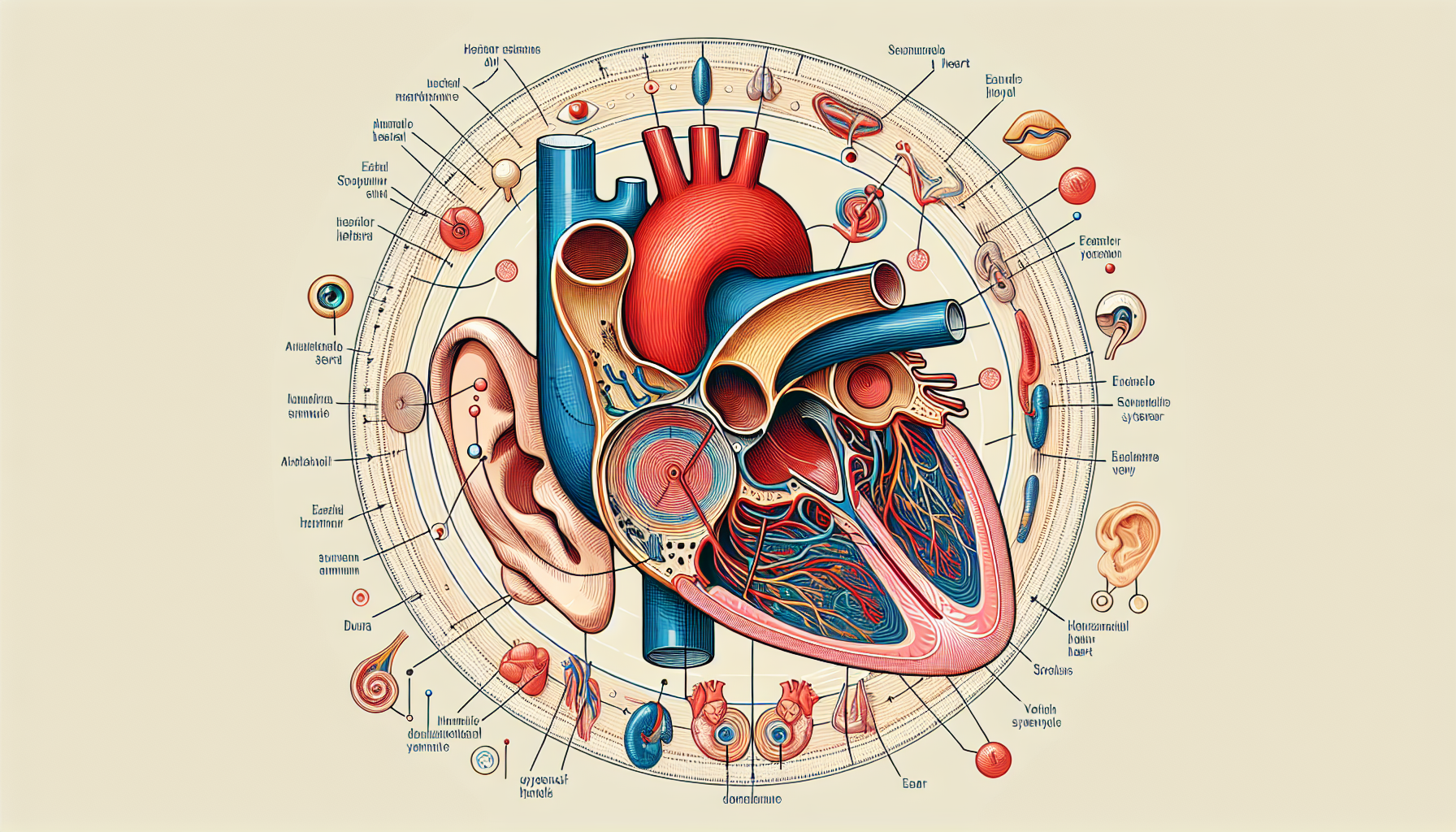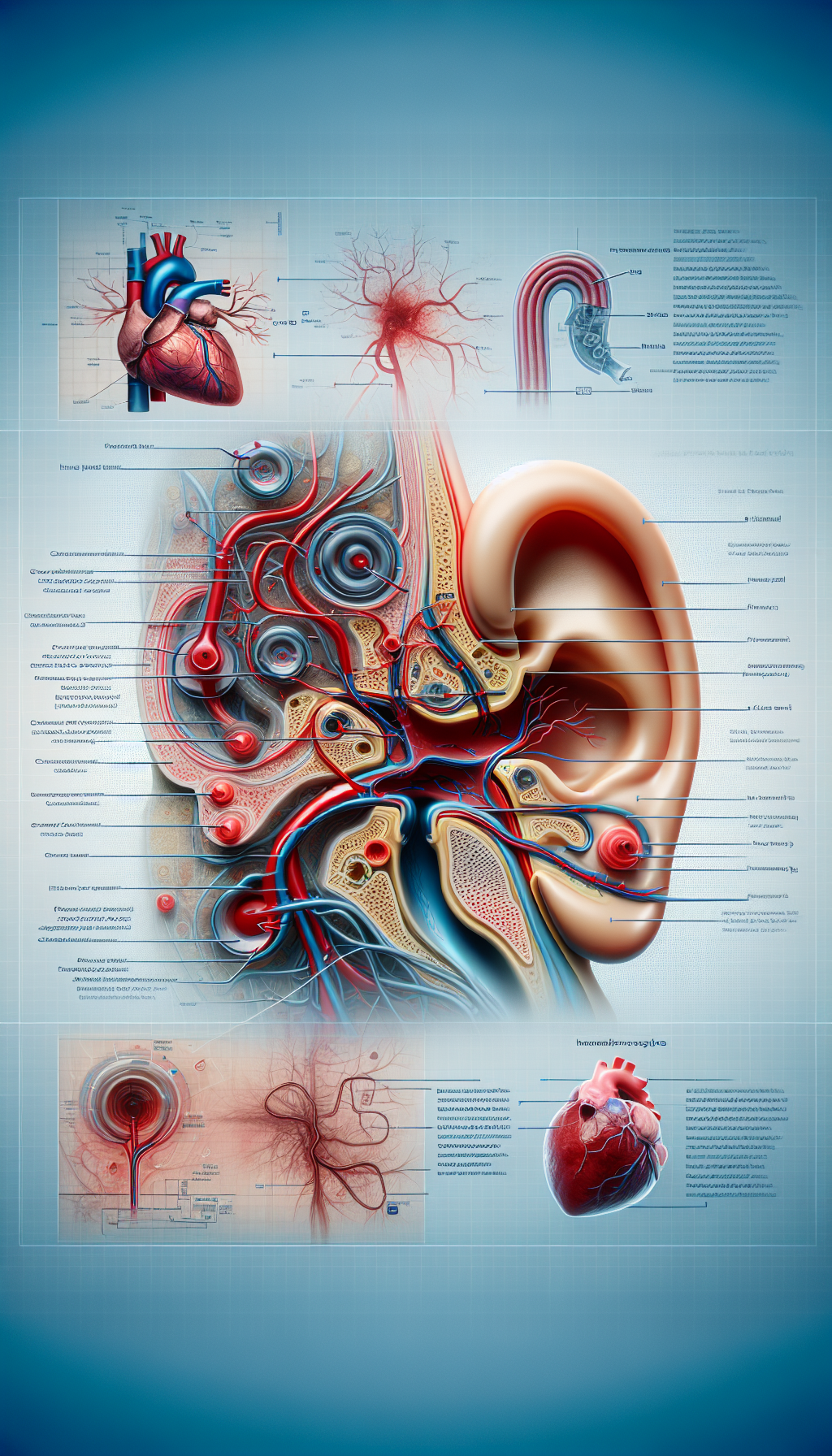The intricate relationship between the heart and the ears might not be immediately apparent, but these seemingly disparate parts of the body are more connected than one might think. Emerging research suggests that the health of your heart can significantly impact your hearing abilities. This article will delve into the science behind this connection, explore potential implications, and offer strategies for safeguarding both your heart and hearing health.
The Cardiovascular-Hearing Link
Our cardiovascular system, a complex network of the heart and blood vessels, is responsible for circulating blood throughout the body, delivering oxygen and nutrients to various tissues, including the delicate structures within the ear. The inner ear, in particular, is highly sensitive to blood flow, and any reduction can lead to hearing impairment.
Studies have indicated that conditions which compromise cardiovascular health, such as hypertension, atherosclerosis, and peripheral artery disease, can also lead to diminished auditory function. For instance, hypertension can cause damage to the blood vessels in the stria vascularis, a part of the ear critical for translating sound into nerve impulses.
For more comprehensive information on cardiovascular health, you can visit Avix Health’s dedicated page.
How Heart Disease Affects Hearing
Heart disease can lead to reduced or irregular blood flow. This can starve the cochlea— the hearing organ— of the necessary oxygen and nutrients it needs, resulting in hearing loss. The relationship between heart health and hearing is supported by the fact that the inner ear is so sensitive to blood flow that it can be one of the first areas of the body to be affected by cardiovascular abnormalities.
To understand the profound effects of heart health on hearing, consider the following mechanisms:
- Hypertension: Chronic high blood pressure can cause the delicate blood vessels in the ear to harden and narrow, a condition known as arteriosclerosis, leading to suboptimal ear function.
- Atherosclerosis: This is a buildup of plaques in the arteries which can reduce blood flow to the inner ear, much like it can lead to heart attacks and strokes when it affects coronary and cerebral arteries.
- Heart Failure: Reduced cardiac output in heart failure means less blood reaches the inner ear, potentially leading to hearing loss.
For those seeking to understand more about how diet can affect lipid levels and, by extension, heart and ear health, reading about Managing Lipid Levels Through Diet and Lifestyle can provide valuable insights.
Hearing Loss as a Marker for Cardiovascular Disease
Interestingly, hearing loss may not only be a consequence of poor heart health but could also serve as a possible early marker for cardiovascular disease. This is particularly significant since cardiovascular disease remains one of the leading causes of death worldwide.
A routine hearing test could, therefore, provide a non-invasive way to identify individuals at risk of heart disease, allowing for earlier intervention. For more on the importance of regular check-ups in maintaining heart health, consider reading about Cardiovascular Health and the Importance of Regular Dental Check-Ups.
Lifestyle Changes for Heart and Hearing Health
Adopting a healthy lifestyle can benefit both your heart and ears. Here are some strategies that can help:
- Diet: Following a heart-healthy diet rich in fruits, vegetables, whole grains, and lean proteins can help maintain proper blood flow and reduce the risk of hearing loss. The Mediterranean Diet is one such pattern that has been linked to better heart and hearing health.
- Exercise: Regular physical activity helps improve cardiovascular fitness, which can protect against hearing loss by ensuring adequate blood flow to the inner ear.
- Manage Blood Pressure and Cholesterol: Keeping these within healthy ranges reduces the risk of arteriosclerosis and atherosclerosis, which can affect hearing.
- Avoid Smoking: Smoking can exacerbate cardiovascular issues and has been associated with an increased risk of hearing loss.
- Regular Check-Ups: Monitoring heart and hearing health with regular medical check-ups can help catch and manage issues early.
External Resources for Further Reading
While the connection between heart and hearing health is clear, those interested in learning more may find the following resources helpful:
- A scholarly article on the National Institutes of Health’s PubMed provides detailed insights into how cardiovascular diseases can affect the auditory system.
- The American Heart Association offers comprehensive resources on maintaining cardiovascular health, which indirectly supports hearing health.
- For a deep dive into the mechanics of hearing loss, the Hearing Loss Association of America provides extensive information and support resources.
Conclusion
The body is a network of interconnected systems, and the link between heart health and hearing loss is a testament to this interdependence. By understanding the connection and taking proactive measures to maintain cardiovascular health, we can also protect our hearing capabilities. With the right lifestyle choices and vigilant monitoring of health markers, it’s possible to support both these critical aspects of our wellbeing. Remember, taking care of your heart isn’t just about longevity—it’s also about the quality of life, which includes the precious ability to hear the world around us.



